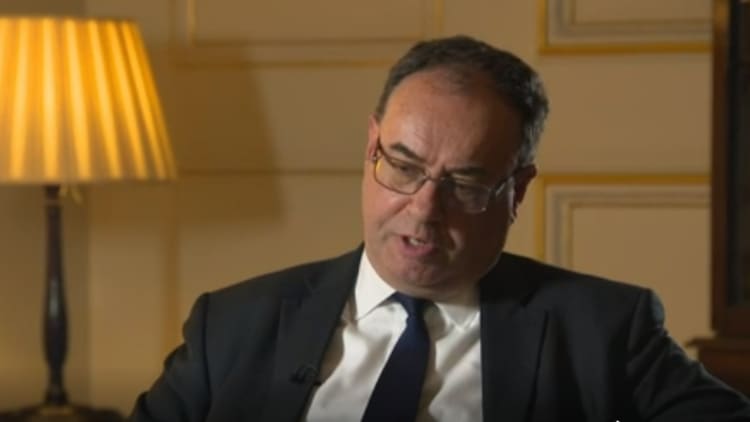LONDON — U.K. inflation came in at an annual 5.5% in January, slightly ahead of forecasts and remaining at a 30-year high.
On a monthly basis, consumer prices contracted by 0.1%, slightly less than expected by economists in a Reuters poll. The annual print was expected to remain at 5.4%.
December's 5.4% annual rise in consumer prices was the highest since 1992, and the Bank of England has imposed consecutive interest rate hikes for the first time since 2004 in a bid to contain runaway inflation.
The Bank expects inflation to peak at 7.25% in April, having previously projected a 6% ceiling in its December report.
The Consumer Prices Index including owner occupiers' housing costs (CPIH) rose by 4.9% in the 12 months to January 2022, up from 4.8% in December, the Office for National Statistics said Wednesday.
The largest contributors were energy, fuel and food, among other items such as second-hand cars.
Hinesh Patel, portfolio manager at Quilter Investors, said the Bank of England's next policy meeting now looks likely to be a "rubber stamping" for another interest rate hike, with the only question being whether the Monetary Policy Committee opts for a rise of 25 basis points or 50 basis points.
"While there are signs that some of the supply chain bottlenecks are easing, and that prices for certain goods are moderating, the upside inflation risks remain clear," Patel said.
He noted that Russia-Ukraine tensions are keeping gas prices elevated while energy costs continue to soar, but a mild winter and spring and a potential de-escalation in eastern Europe could moderate prices somewhat.

"We currently have extremely tight labor markets at the moment through a combination of Brexit, long Covid and early workforce leavers, none of which will be addressed by monetary policy in the here and now," Patel added.
Households in the U.K. are feeling the pinch from a cost of living crisis as energy prices surge. The spike has prompted the country's energy regulator to raise its energy price cap by 54% from April, as supply side problems continue to exert upward pressure on costs.
"Households should brace themselves for further acceleration in the cost of living until at least the second half of 2022, particularly when the energy price hike is implemented in April," said Colin Dyer, client director at Abrdn Financial Planning.
"The Bank of England could also be justified in raising interest rates more than once over the next few months to defend these soaring prices – meaning even more challenges may lie ahead for households."

